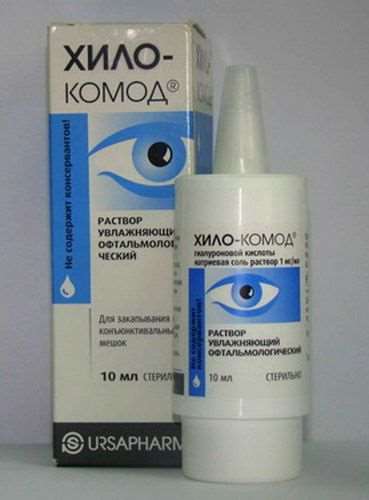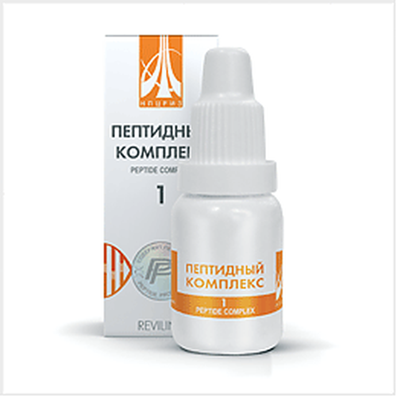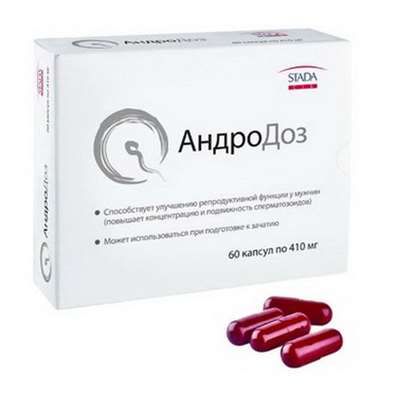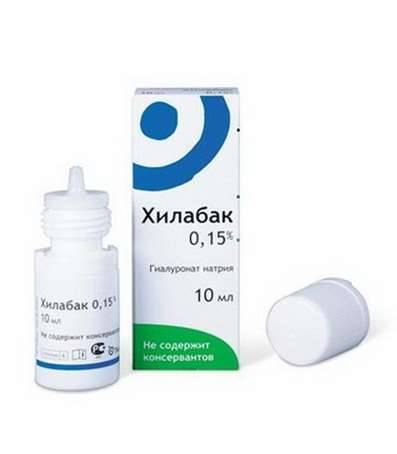Instruction for use: Sodium nucleinate
I want this, give me price
Dosage form: Powder for oral administration; Substance-powder; Film-coated tablets
Active substance: Natrii nucleinas
ATX
L03AX Other immunostimulants
Pharmacological group
Other immunomodulators
The nosological classification (ICD-10)
A04.9 Bacterial intestinal infection, unspecified: Bacterial intestinal infection; GI tract infections; Infections of intestinal bacterial; Digestive tract infections; Infectious and inflammatory diseases of the digestive tract; Infectious Disease of the GI tract; Infection of the intestine; Intestinal infection; Acute infectious disease of the digestive tract; Acute intestinal disease with colon lesions; Acute intestinal infection
A09 Diarrhea and gastroenteritis of allegedly infectious origin (dysentery, bacterial diarrhea): Bacterial diarrhea; Bacterial dysentery; Bacterial infections of the digestive tract; Bacterial gastroenteritis; Diarrhea bacterial; Diarrhea or dysentery of amoebic or mixed etiology; Diarrhea of infectious genesis; Diarrhea on the background of antibiotic therapy; Traveler's Diarrhea; Travelers diarrhea due to changes in diet and habitual diet; Diarrhea due to antibiotic therapy; Dysenteric bacteriocarrier; Dysenteric enteritis; Dysentery; Dysentery bacterial; Dysentery mixed; Gastrointestinal infection; GI tract infections; Infectious diarrhea; Infectious Disease of the GI tract; Infection of the gastrointestinal tract; Infection of the biliary tract and gastrointestinal tract; GI tract infection; Summer diarrhea; Nonspecific acute diarrhea of infectious nature; Nonspecific chronic diarrhea of infectious nature; Acute bacterial diarrhea; Acute diarrhea in food poisoning; Acute dysentery; Acute bacterial gastroenteritis; Acute gastroenterocolitis; Acute Enterocolitis; Subacute dysentery; Diarrhea chronic; Refractory diarrhea in AIDS patients; Staphylococcal enteritis in children; Staphylococcal enterocolitis; Toxic diarrhea; Chronic dysentery; Enteritis; Enteritis infectious; Enterocolitis
A15-A19 Tuberculosis: Lightning pulmonary tuberculosis; Chronic tuberculosis of the lungs; Disseminated tuberculosis; Disseminated tuberculosis of the lungs; Pulmonary tuberculosis; Drug-resistant tuberculosis; Drug-resistant form of tuberculosis; Drug-resistant tuberculosis; Tuberculosis; Pulmonary tuberculosis; Pulmonary tuberculosis; Fulminant tuberculosis of the lungs; Tuberculosis of the lung chronic multidrug-resistant; Caseous pneumonia
B00 Infections caused by the herpes simplex virus [herpes simplex]: Herpes simplex; Herpes virus; Herpes simplex virus; Herpes simplex virus type I and II; HSV; Herpes; Herpes simplex / herpes simplex /; Herpes lips; Herpes simplex; Herpes in patients with immunodeficiency; Labial herpes; Acute herpetic disease of the mucous membranes; Herpes simplex; Herpes simplex skin and mucous membranes; Herpes simplex with skin and mucous membrane damage; Recurrent herpes; Urogenital herpetic infection; Chronic recurrent herpesvirus infection; Herpes-viral infections of various localizations
B00.5 Herpetic eye disease: Recurrent ophthalmoherpes; Herpetic keratitis; Ophthalmoherpes; Herpetic conjunctivitis; Herpetic uveitis; Herpetic keratitis; Herpetic stromal keratitis without ulceration of the cornea; Herpetic stromal keratitis with ulceration of the cornea;Eye shape Herpes zoster; Herpetic keratoconjunctivitis; Conjunctivitis herpeticum; Herpetic conjunctivitis; Deep forms of ophthalmoherpes; Superficial herpetic keratitis
B02 Shingles [herpes zoster]: Herpes zoster; Herpes zoster; Shingles Herpes; Localized shingles; Infection caused by the herpes zoster virus; Shingles
B02.3 Shingles with eye complications: Eye shape of shingles; Herpes zoster eye
B20-B24 Disease caused by human immunodeficiency virus [HIV]: Deployed stage of HIV infection; AIDS in children; HIV / AIDS infection; Infections with HIV; AIDS; Human Immunodeficiency Virus HIV-1; HIV-1 infection HIV infection; HIV
B34 Viral infection of unspecified site: Viral respiratory tract infections; Infections viral; Viral infection; Viral infections
B49 Mycosis, unspecified: Common mycoses; Visceral mycosis; Deep endemic mycoses; Keratomycosis; Cutaneous mycosis; Pulmonary mycosis; Mycosis; Mycosis eyes; Mycoses of the gastrointestinal tract; Mycosis of large skin folds; Mycosis with secondary bacterial infection; Mycoses in patients with immunodeficiency; Systemic fungal infections; Tropical mycoses; Fungal infections of the skin; Fungal lesions of skin folds; Fungal infection; Fungal skin lesions; Fungal lesions of the bronchial mucosa; Fungal lesions of the oral mucosa; Infections fungal; Infections of skin fungal; Skin mycoses; Mycosis systemic; Mycosis of the mucous membranes
B99 Other infectious diseases: Infections (opportunistic); Infections on the background of immunodeficiency; Opportunistic infections
D70 Agranulocytosis: Agranulocytosis is hereditary; Aleicia; Aleykocytosis; Agranulocytic angina; Angina agranulocytic; Primary cytopenia
D72 Other disorders of white blood cells: Lymphocytopenia; Hereditary neutropenia
D84.9 Unspecified Immunodeficiency: Pneumonia in immunodeficient states; Autoimmune disease; Autoimmune diseases; Severe immunodeficiency; immune deficiency; Immunodeficiency; immunodeficiency diseases; Immunodeficiency states due to surgery; Immunotherapy for cancer; Immunomodulation; Infections in patients with weakened immune systems; Correction of immune deficiency; Correction of immunodeficiencies; Correction of a weakened immune system; Correction of a weakened immunity in immunodeficient states; Violation of immunity; Violation of the immune status; Immune System Disorders; Primary immunodeficiency; Maintaining immunity; Lowering the body's defenses; Lowering the immunity; Lowering the immunity of colds and infectious diseases; The decrease of the immune status; Lowered resistance to infections; Lowered resistance to infections and colds; Lowered resistance; Immunosuppression; Predisposition to colds; acquired immune deficiencies; Radiation immunodeficiency; The development of immunodeficiency; Immune dysfunction syndrome; immunodeficiency syndrome; primary immunodeficiency syndrome; Reducing the body's defenses; Immunosuppression; Reduced immune defense; Reducing local immunity; Reducing the total body resistance; The decrease in cell-mediated immunity; Reduced resistance to infections in children; Reducing the body's resistance; Reduced resistance; reduced immunity; Status immunodeficiency; Stimulation of the processes of nonspecific immunity; Heavy selective secondary immunodeficiency; immunity Oppression; Primary immunodeficiency
E83.3 Disturbances in the exchange of phosphorus: Violation of the calcium-phosphorus balance; Disruption of phosphorus metabolism; Congenital hypophosphatase; Phosphaturia
E88.8 Other specified metabolic disorders
F10.2 Syndrome of alcohol dependence: Alcoholism; Alcohol addiction; posiomania; Dependence on alcohol; dipsomania; drunken state; alcohol abuse; Ideatornoy violations in alcoholism; Quarterly booze; Obsessive craving for alcohol; Neurotic symptoms of alcoholism; Craving for alcohol; Psychoorganic syndrome in chronic alcoholism; Reduced craving for alcohol; chronic alcoholism
F99 Unspecified mental disorders: Child psychosis; Mental disturbance; Violation of mental activity; Psychoses of childhood
H16 Keratitis: Adenoviral keratitis; Bacterial keratitis; Spring keratitis; Deep keratitis without epithelial lesion; Deep keratitis without epithelial damage; discoid keratitis; Outline keratitis; keratitis rosacea; Keratitis with corneal destruction; Superficial keratitis; punctate keratitis; Traumatic keratitis; Superficial punctate keratitis
H19.1 Keratitis due to herpes simplex virus, and keratoconjunctivitis (B00.5 +): Recurrent ophthalmoherpes; Ophthalmoherpes; Herpetic keratoconjunctivitis; Herpetic conjunctivitis
H35.3 Macular and posterior pole degeneration: Macular degeneration; Retinal dystrophy; Angiosclerotic maculodystrophy; Age-related macular degeneration; Age-related macular degeneration; Nontranssudative forms of macular degeneration; Degenerative changes of a yellow stain; Stargardt's disease; Degenerative processes in the yellow spot; Retinal degeneration; Macular degeneration; Pigmented degeneration of the retina; Macular degeneration age (senile); Dystrophy of the mesh membrane; Hereditary pigmentary degeneration of the retina; Hereditary taperoteretal degenerations; Older macular degeneration
H60 Otitis media: ENT organs infections; Infections of the external auditory canal; Infectious-inflammatory diseases of the ear; Acute catarrhal inflammation of the external auditory canal; Infections of the external ear
H66 Purulent and unspecified otitis media: Bacterial ear infections; Inflammation of the middle ear; Infections of ENT organs; Infectious-inflammatory disease of ENT organs; Infectious and inflammatory diseases of ENT organs; Infectious-inflammatory diseases of the ear; Infectious diseases of ENT organs with severe pain syndrome; Ear infection; Otitis media is infectious; Persistent middle ear inflammation in children; Ear pain with otitis
J15 Bacterial pneumonia, not elsewhere classified
J16.8 Pneumonia caused by other specified infectious agents
J17 Pneumonia in diseases classified elsewhere
J18 Pneumonia without specification of pathogens: Alveolar pneumonia; Community-acquired pneumonia atypical; Community-acquired pneumonia non-pneumococcal; Pneumonia; Inflammation of the lower respiratory tract; Inflammatory lung disease; Shared pneumonia; Respiratory and lung infections; Infections of the lower respiratory tract; Cough with inflammatory diseases of the lungs and bronchi; Croupous pneumonia; Nosocomial pneumonia; Exacerbation of chronic pneumonia; Acute community-acquired pneumonia; Acute pneumonia; Focal pneumonia; Pneumonia abscessing; Pneumonia bacterial; Pneumonia croupy; Pneumonia of focal; Pneumonia with difficulty in sputum discharge; Pneumonia in AIDS patients; Pneumonia in children; Septic pneumonia; Chronic Obstructive Pneumonia; Chronic pneumonia; Lymphoid interstitial pneumonia
J22 Acute respiratory infection of lower respiratory tract, unspecified: Bacterial respiratory disease; Bacterial infections of the lower respiratory tract; Bacterial infections of the respiratory system; Viral respiratory disease; Viral respiratory tract infections; Inflammatory respiratory disease;; Difficult sputum separation in acute and chronic respiratory diseases; Respiratory tract infections; Respiratory and lung infections; Lower respiratory tract infections; Infections of the lower respiratory tract; Infectious inflammation of the respiratory tract; Infectious diseases of the respiratory tract; Infectious diseases of the lungs; Infectious diseases of the respiratory system; Respiratory tract infection; Cough for colds; Pulmonary infection; Acute respiratory tract infection; Acute respiratory viral infection; Acute inflammatory airway disease; Acute respiratory disease; Respiratory infection; Respiratory and viral infections; Respiratory syncytial viral infection in young children; Respiratory diseases; Respiratory infections
J35.0 Chronic tonsillitis: chronic tonsillitis; Inflammatory diseases of the tonsils; Angina chronic; Chronic hypertrophic tonsillitis; Tonsillar angina
J39 Other diseases of upper respiratory tract
J86 Pythorax: Purulent pleurisy; Destruction of lungs bacterial; Pleurisy purulent; Empyema; Empyema of the lungs; Empyema of the lung; Empyema of the pleura
K05.4 Periodontal disease: Alveolar pyorrhea; Amphodontosis; Chronic parodontosis; Superficial and deep periodontitis; Pyorrhea
K25 Stomach ulcer: Helicobacter pylori; Pain syndrome with gastric ulcer; Pain syndrome with peptic ulcer of stomach and duodenum; Inflammation of the gastric mucosa; Inflammation of the mucosa of the gastrointestinal tract; Benign ulcer of the stomach; Disease of the stomach and duodenum, associated with Helicobacter pylori; Exacerbation of gastroduodenitis against ulcer disease; Exacerbation of peptic ulcer; Exacerbation of gastric ulcer; Organic GI disease; Peptic ulcer of the stomach and duodenum; Postoperative Stomach Ulcer; Recovering ulcers; Symptomatic Stomach Ulcers; Chronic inflammatory disease of the upper gastrointestinal tract associated with Helicobacter pylori; Helicobacter pylori eradication; Erosive-ulcerative lesions of the stomach; Erosive lesions of the stomach; Erosion of the gastric mucosa; Peptic Ulcer; Stomach ulcer; Stomach ulcer; Ulcerative lesions of the stomach; Symptomatic ulcers of the stomach and duodenum
K26 Ulcer of duodenum: Pain syndrome with duodenal ulcer; Pain syndrome with peptic ulcer of stomach and duodenum; Disease of the stomach and duodenum, associated with Helicobacter pylori; Exacerbation of peptic ulcer; Exacerbation of duodenal ulcer; Peptic ulcer of the stomach and duodenum; Recurrence of duodenal ulcer; Symptomatic ulcers of the stomach and duodenum; Helicobacter pylori eradication; Erosive-ulcerative lesions of the duodenum; Erosion-ulcerative duodenal lesions associated with Helicobacter pylori; Erosive lesions of the duodenum; Peptic ulcer disease of the duodenum; Ulcerative duodenal lesions
K76.9 Liver disease, unspecified: Change in liver function in heart failure; Restoration of impaired liver function; Severe liver function disorders; Hepatitis; Hepatosis; Hepatopathy; Liver dysfunction; Diseases of the liver; Impaired liver function; Dysfunction of the liver; Infringements of function of a liver of an inflammatory etiology; Functional liver failure; Functional disorders of the liver; Chronic liver disease; Chronic diffuse liver disease; Enterogenic diseases of the gallbladder and liver
M00-M03 Infectious arthropathies: Infectious arthritis; Pyogenetic arthritis; Septic arthritis; Infections of the joints
M79.0 Rheumatism, unspecified: Degenerative rheumatic disease; Degenerative and rheumatic diseases of the tendons; Degenerative rheumatic diseases; Localized forms of rheumatism of soft tissues; Rheumatism; Rheumatism with a pronounced allergic component; Rheumatism of the articular and extraarticular; Rheumatic attack; Rheumatic complaints; Rheumatic diseases; Rheumatic disease; Rheumatic disease of the spine; Relapses of rheumatism; Articular and extra-articular rheumatism; Articular and muscular rheumatism; Articular rheumatism; Articular syndrome with rheumatism; Chronic rheumatic pain; Chronic articular rheumatism; Rheumatoid diseases; Rheumatic diseases of the intervertebral disc
N03 Chronic nephritic syndrome: Glomerulonephritis chronic; Development of nephrotic syndrome; Syndrome of nephritic chronic; Chronic diffuse kidney disease; Chronic glomerulonephritis
N28.9 Kidney and ureter's disease, unspecified: Disturbance of ureter function; Autoimmune kidney damage; Kidney Diseases; Infringement of a renal blood flow; Impaired renal function; Impaired renal function; Nondiabetic nephropathy; Insufficiency of excretory function of the kidneys; Nephrogenic osteopathy; Nephropathic syndrome; Nephropathy of minimal changes; Maintaining kidney function; Chronic kidney disease; Megaloureter
N39.0 Urinary tract infection without established localization: Fungal infections of the urinary tract; Asymptomatic bacteriuria; Bacterial infections of the urinary tract; Bacterial infections of the urinary tract; Bacterial infections of the genitourinary system; Bacteriuria; Bacteriuria asymptomatic; Bacteriuria chronic latent; Asymptomatic bacteriuria; Asymptomatic massive bacteriuria; Inflammatory urinary tract disease; Inflammatory urinary tract disease; Inflammatory diseases of the bladder and urinary tract; Inflammatory diseases of the urinary system; Inflammatory diseases of the urinary tract; Inflammatory diseases of the urogenital system; Fungal diseases of the urogenital tract; Urinary Tract Infections; Urinary Tract Infections; Infections of the urinary system; Urinary tract infections; Urinary Tract Infections; Urinary tract infections caused by enterococci or mixed flora; Urinary tract infections uncomplicated; Urinary tract infections complicated; Infections of the urogenital system; Infections urogenital; Infectious diseases of the urinary tract; Urinary Tract Infection; Urinary tract infection; Urinary system infection; Urinary tract infection; Urinary tract infection; Infection of the urogenital tract; Uncomplicated urinary tract infections; Uncomplicated urinary tract infections; Uncomplicated urinary tract infections; Uncomplicated infections of the genitourinary system; Exacerbation of chronic urinary tract infection; Retrograde kidney infection; Recurrent urinary tract infections; Recurrent urinary tract infections; Recurrent infectious diseases of the urinary tract; Mixed urethral infections; Urogenital infection; Urogenital Infectious-Inflammatory Disease; Urogenital mycoplasmosis; Urologic disease of infectious etiology; Chronic urinary tract infection; Chronic inflammatory diseases of the pelvic organs; Chronic urinary tract infections; Chronic infectious diseases of the urinary system
N70 Salpingitis and oophoritis: Adnexitis; Inflammatory diseases of female genitalia; Inflammatory diseases of female genital organs; Infection of the genitals; Oophoritis; Acute adnexitis; Salpingitis; Salpingo-oophoritis; Chronic inflammatory diseases of the ovaries; Inflammation of the ovaries
R54 Age-related disease: External signs of aging; Age-related eye disease; Age-related visual impairment; Age-related vascular disease; Age constipation; Age-related changes in visual acuity; Age-related changes in the brain involutional; Age-related disorders; Age-related hearing loss; gerontological practice; senile dementia; Deficiency of calcium and vitamin D3 in the elderly; cerebral vascular disease and age-related; involutionary depression; involutional depression; Correction of metabolism in middle and old age; Malnutrition in elderly and senile age.; senile dementia; senile dementia; senile depression; senile colpites; senile psychosis; Syndrome of age involution; Hearing loss age; Aging; Brain Aging; The aging of the organism; senile dementia; senium; Senile involutional psychosis; senile psychosis; Memory impairment in elderly patients; Conduct disorders in the elderly
T14.1 Open wound of unspecified body region: Secondary healing processes; Sluggishly granulating wounds; Sluggishly healing wounds; Sluggish wounds; Deep Wounds; Purulent wound; Granulating wounds; Prolonged non-healing wound; Long-lasting non-healing wound and ulcer; Long-lasting non-healing soft tissue wound; Healing of wounds; Wound healing; Capillary bleeding from superficial wounds; Bleeding wound; Radiation Wounds; Slowly epithelializing wounds; Minor cuts; Suppurated wounds; Violation of wound healing processes; Breach of skin integrity; Violations of the integrity of the skin; Violations of the integrity of the skin; Small cuts; Uninfected wounds; Uncomplicated wounds; Operating wound; Primary treatment of surface contaminated wounds; Primary wound treatment; Primary-delayed treatment of wounds; Poorly cicatrizing wound; Poor wound healing; Bad wound; Superficial injury; Superficial wound with mild exudation; Wound; The wound is large; Bite wound; Wound process; Wounds; Wound healing wounds; Stump Wounds; Wounds for gunshot; Wounds with deep cavities; Difficult healing wounds; Difficult wounds; Chronic Wounds
T51-T65 Toxic effect of substances, mainly non-medical use
T79.3 Post-traumatic wound infection, not elsewhere classified: Inflammation after surgery and trauma; Inflammation after trauma; Secondary infection of skin and mucous membrane damage; Deep Wounds; Purulent wound; Purulent-necrotic phase of wound process; Purulent-septic diseases; Purulent Wounds; Purulent wounds with the presence of deep cavities; Granulating wounds of small size; Disinfection of purulent wounds; Wound infections; Infections wound; Infection of wounds; Infected and non-healing wound; Infected postoperative wound; Infected wound; Infected Skin Wounds; Infected burns; Infected Wounds; Suppurating postoperative wounds; Extensive purulent-necrotic process of soft tissues; Burn infections; Burn infection; Perioperative infection; Poorly healing infected wound; Postoperative and purulent-septic wound; Postoperative wound infection; Wound infection; Wound botulism; Wound infections; Wounds of purulent; Wounds infected; Reinfection of granulating wounds; Sepsis posttraumatic
Z100 * CLASS XXII Surgical practice: Abdominal surgery; adenomectomy; Amputation; Coronary angioplasty; Angioplasty of the carotid arteries; Antiseptic skin treatment for wounds; Antiseptic Hand; Appendectomy; atherectomy; Balloon coronary angioplasty; Vaginal hysterectomy; The coronary bypass; Interventions in the vagina and cervix; Interventions on the bladder; Intervention in the mouth; Restoration and reconstructive surgery; Hand hygiene of medical personnel; Gynecologic surgery; Gynecological intervention; Gynecological surgery; Hypovolemic shock during operations; Disinfection of purulent wounds; Disinfection of wounds edges; Diagnostic intervention; Diagnostic procedures; Cervical Diathermocoagulation; Long-surgery; Replacing the fistula catheters; Infection in orthopedic surgery; Artificial heart valve; cystectomy; Short-term outpatient surgery; Short-term operation; Short surgical procedures; Krikotireotomiya; Blood loss during surgery; Bleeding during surgery and in the postoperative period; Kuldotsentez; laser photocoagulation; laser coagulation; retinal laser coagulation; Laparoscopy; Laparoscopy in Gynecology; CSF fistula; Small gynecological operations; Small surgical procedures; Mastectomy and subsequent plastic; mediastinotomy; Microsurgical operations on the ear; Mukogingivalnye operation; suturing; Minor surgery; neurosurgical operation; Immobilization of the eyeball in ophthalmic surgery; testectomy; pancreatectomy; Perikardektomiya; The period of rehabilitation after surgery; The period of convalescence after surgery; Percutaneous transluminal coronary angioplasty; Pleural thoracentesis; Pneumonia postoperative and posttraumatic; Preparation for surgical procedures; Preparation for surgery; Preparation of the surgeon's hands before surgery; Preparation of the colon for surgical procedures; Postoperative aspiration pneumonia in neurosurgical and thoracic surgery; Postoperative nausea; Postoperative bleeding; postoperative granuloma; postoperative shock; The early postoperative period; myocardial revascularization; Radiectomy; gastric Resection; bowel resection; uterine Resection; liver Resection; enterectomy; Resection of part of the stomach; Reocclusion of the operated vessel; Bonding tissues during surgical procedures; Removal of sutures; Condition after eye surgery; Condition after surgery; Condition after surgery in the nasal cavity; Condition after gastrectomy; Status after resection of the small intestine; Condition after tonsillectomy; Condition after removal of the duodenum; Condition after phlebectomy; Vascular surgery; Splenectomy; Sterilization of surgical instruments; Sterilization of surgical instruments; sternotomy; Dental surgery; Dental intervention in periodontal tissues; strumectomy; Tonsillectomy; Thoracic surgery; Thoracic surgery; total gastrectomy; Transdermal intravascular coronary angioplasty; Transurethral resection; Turbinektomiya; Removal of a tooth; cataract surgery; Removal of cysts; tonsillectomy; Removal of fibroids; Removing the mobile primary teeth; Removing polyps; Removing broken tooth; Removal of the uterus body; Removal of sutures; Fistula likvoroprovodyaschih ways; Frontoetmoidogaymorotomiya; Surgical infection; Surgical treatment of chronic limb ulcers; Surgery; The surgery in the anal area; The surgery on the colon; Surgical practice; The surgical procedure; Surgical interventions; Surgery on the gastrointestinal tract; Surgical procedures on the urinary tract; Surgical procedures on the urinary system; Surgical intervention of the genitourinary system; Surgical procedures on the heart; Surgical manipulation; surgery; Surgery on the veins; Surgical intervention; Vascular surgery; Surgical treatment of thrombosis; Surgery; cholecystectomy; Partial gastric resection; hysterectomy; Percutaneous transluminal coronary angioplasty; Percutaneous transluminal angioplasty; Coronary artery bypass; tooth Extirpation; Extirpation of milk teeth; pulpectomy; pulsative cardiopulmonary bypass; tooth Extraction; teeth Extraction; cataract extraction; Electrocoagulation; endourological intervention; episiotomy; Etmoidotomiya; Complications after tooth extraction
Composition and release form
Coated tablets.
Sodium nucleate (isolated from baker's yeast) 0.25 g
Auxiliary substances: calcium stearic acid; potato starch; PVP low molecular weight; rafinated sugar; Aerosil; Beeswax; Titanium dioxide; Gelatin food; Magnesium carbonate basic; sunflower oil; paraffin; talc
In polymer cans of 50 pieces; In a pack of cardboard 1 can.
Powder for the preparation of a suspension for oral administration 1 f.
Sodium nucleate 0.5 g
In bottles of 10 ml.
Pharmachologic effect
Mode of action - immunostimulating, increasing nonspecific resistance of the organism, leukopoietic.
Has a wide range of biological activity. It induces a leukocyte reaction, stimulates bone marrow activity, intracellular metabolism and nucleic acid metabolism. It has the activity of a polyclonal immunostimulant, regulating the migration of T-lymphocytes and the processes of cooperation of T and B lymphocytes, stimulates the phagocytic activity of macrophages and the production of factors of nonspecific defense of the organism, especially in immunodeficiencies.
Indications of the Sodium nucleinate
As an immunomodulator in diseases accompanied by the development of immunodeficiency (diseases of the upper respiratory tract, pneumonia, tuberculosis, rheumatism, ulcerous gastroduodenal zone, herpetic keratitis, kidney, liver, mental disorders, etc.); To increase the activity of low immunogenic vaccines and vaccinate people with immunodeficiency; Prevention of postoperative bacterial complications and improvement of wound healing; Leukopenia and agranulocytosis, lymphocytopenia; Violation of phosphorus metabolism (phosphaturia, rickets, etc.); Deficiency of ribonucleotides in the blood and tissues; Dystrophy and ulcerative processes, incl. Taperetinal degeneration of the retina; Parodontosis; Chronic alcoholism; Bacterial and occupational intoxications, incl. Prevention of the latter; Old age, incl. Persons with physical senility; Athletes, people in extreme conditions.
Contraindications
Hypersensitivity, pregnancy, the period of breastfeeding.
Side effects
Rarely, allergic reactions.
Interaction
Not found.
Dosing and Administration
Inside, after a meal. The daily dose is 1-2 g in 3-4 doses. The course is from 2 weeks to 3 months and more. Elderly and elderly people can be taken 2 times a year, in spring and autumn, 1-1.5 g per day for 2-3 weeks with multivitamins. Athletes - 1-1.5 grams per day in 3-4 receptions for the period of competition. For prophylaxis of occupational drugs, the drug is taken in a daily dose of 1-1.5 g for 2-3 weeks 1-2 times per year.
Manufacturer
OJSC "Biosintez", Russia.
Storage conditions of the drug Sodium nucleinate
In dry, the dark place at a temperature of no higher than 25 ° C.
Keep out of the reach of children.
The shelf life of the drug Sodium nucleinate
2 years.
Do not use beyond the expiration date printed on the package.

 Cart
Cart





